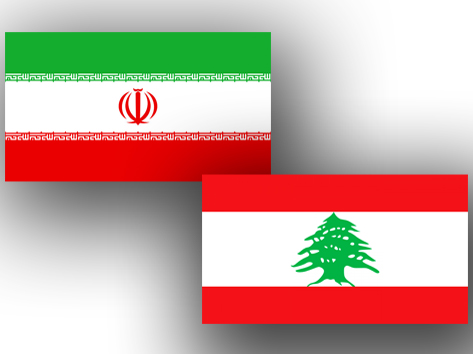Baku, Azerbaijan, Dec. 16
By Umid Niayesh, Milad Fashtami - Trend:
After several months of uncertainty about the fate of Iran's military aid to Lebanon's army, Iran's Defense Minister, Hossein Dehghan officially announced that the Lebanese government did not accept the aid.
The Issue of Iran's gratuitous military aid to Lebanon's army was shared with the public on Sept. 30 during the visit of Ali Shamkhani, secretary of the Islamic Republic's Supreme National Security Council to Beirut.
Shamkhani announced that Iran would give the Lebanese army military equipment and weapons, however the Lebanese side declined to formally respond to Iran's offer.
Iranian military expert, Hossein Aryan believes that various factors, in particular pressure of some countries, especially the US, affected the Lebanese government's decision, to reject the aid.
Washington had warned Lebanon not to accept the offer of Iranian arms, Aryan told Trend Dec. 16, adding that the US doesn't want Iran's influence in Lebanon higher than the current level.
Some Lebanese officials' expressed concern that the arms transfer would be a violation of the UN sanctions on Iran and this was also an important factor on making the decision, Aryan explained.
It should be noted that in March 2007 the United Nations Security Council adopted Resolution 1747 which established an embargo on the export from Iran of all arms and related materials, thereby banning all states and groups from purchasing or receiving arms from Iran. The resolution also called on all states to 'exercise vigilance and restraint' in their supply of any items covered by the UN Register of Conventional Arms to Iran.
Aryan also said that Saudi Arabia, which is in a "proxy war" (a war instigated by a major power that does not itself become involved)" with Iran in the region also imposed pressure on Lebanon to refuse the military aid.
Reportedly, Saudi King Abdullah bin Abdulaziz had asked then Lebanese President Michel Suleiman during their meeting in Riyadh in November about why the Lebanese army hadn't closed the border with Syria and prevented Hezbollah fighters from crossing, Aryan said.
He added that Saudi Arabia has promised to give $3 billion to buy weapons from France to help support and strengthen the Lebanese army.
The Saudi Arabia also will provide another $1 billion help to the Lebanese army, Aryan said.
All of these aids should be considered within the proxy war between the region's main powers, the expert explained.
He said that France also is among the countries that play an influental role in Lebanon.
In addition to historical ties between France and Lebanon, the French government maintains Israel's interests in Lebanon, Aryan said, adding "Israel doesn't want changes in the balance of powers in southern Lebanon."
The Jewish minority is very powerful in France and the country ranks third in the world in terms of Jewish population after Israel and the US with over half a million, he said. So the country is very close to Israel and defends its interests, Aryan argued.
The politic balance inside Lebanon also is important in the refusal of Iran's aid, the expert said, adding Lebanese don't want the influence of Hezbollah to spread to army by the Islamic Republic's aid.
Hassan Hashemian, Iranian expert on Arab region issues also told Trend Dec. 16 that the Lebanon's army tries to be neutral towards political conflicts, in particular between the regional countries.
Iran's possible influence on the Lebanese army through the mentioned aid has increased concerns in the country over the army's tendency towards certain groups, he said.
"So the issue is seriously criticized inside the Lebanon," Hashemian underlined.
Hashemian also touched on the role of foreign countries in rejecting the Iran's help by the Lebanese government.
"The US, France and Saudi Arabia as main providers of economic and military aids to Lebanon opposed the issue and prevented its realization," he said, adding that it indicates that the Lebanon army still is independent from Hezbollah and other pro-Iran groups,
However, the Lebanese army is one of the smallest among Arab countries and Hezbollah is actually more powerful than the country's army, he pointed out.
While responding to a question about Iran's main target of providing the military aid to the army, Hashemian said that the Islamic Republic was keen to strengthen Hezbollah's position in fighting with the Syrian opposition groups on the frontline of the Lebanese border town of Arsal.
The Syrian opposition militants impose serious pressure on Hezbollah on Arsal's frontline, he said, adding under the cover of helping the Lebanese army, Iran purposed to decrease the pressure on Hezbollah in Arsal, he explained.
It should be noted that the Islamic State (IS) group has declared war on the Lebanese army, which they claim has assisted the Shiite Iranian-backed Hezbollah group that has de facto control over the government of Lebanon.
In particular, the Sunni jihadists say the army has allowed Hezbollah fighters through checkpoints to assist the Syrian army against Syrian opposition forces. Hezbollah contends that it is providing the assistance to maintain the government of Syrian President Bashar al-Assad, who is closely allied with Iran.
Edited by CN
Umid Niayesh is Trend Agency's staff journalist, follow him on Twitter: @UmidNiayesh






